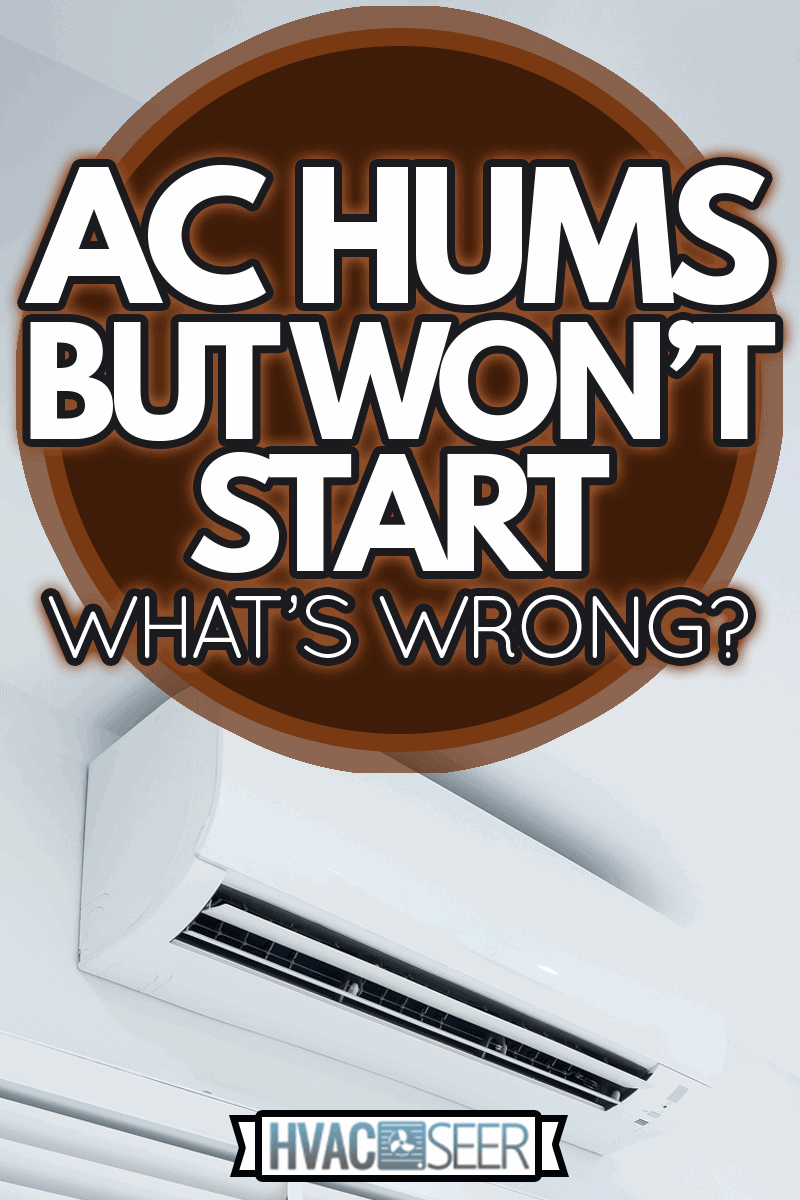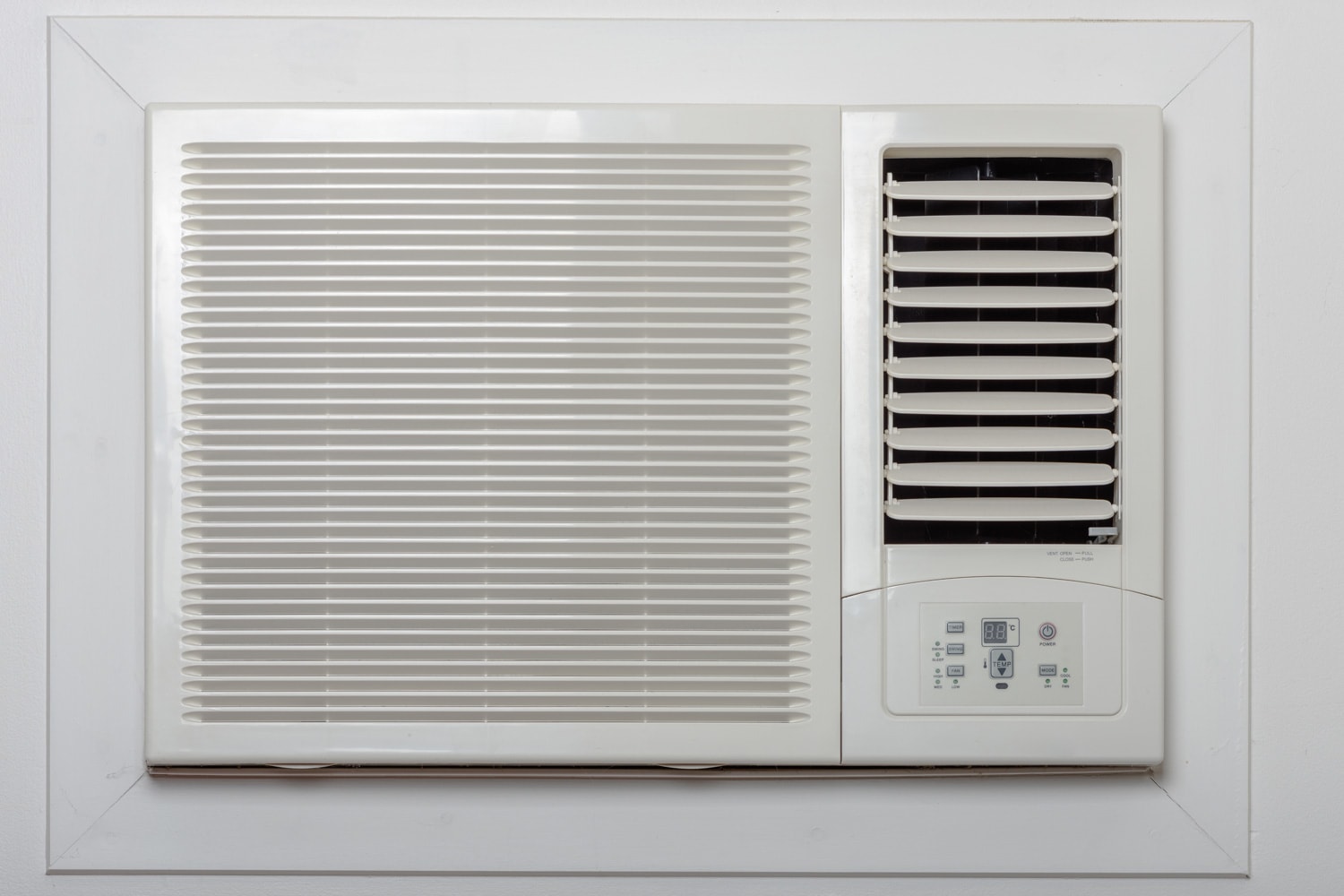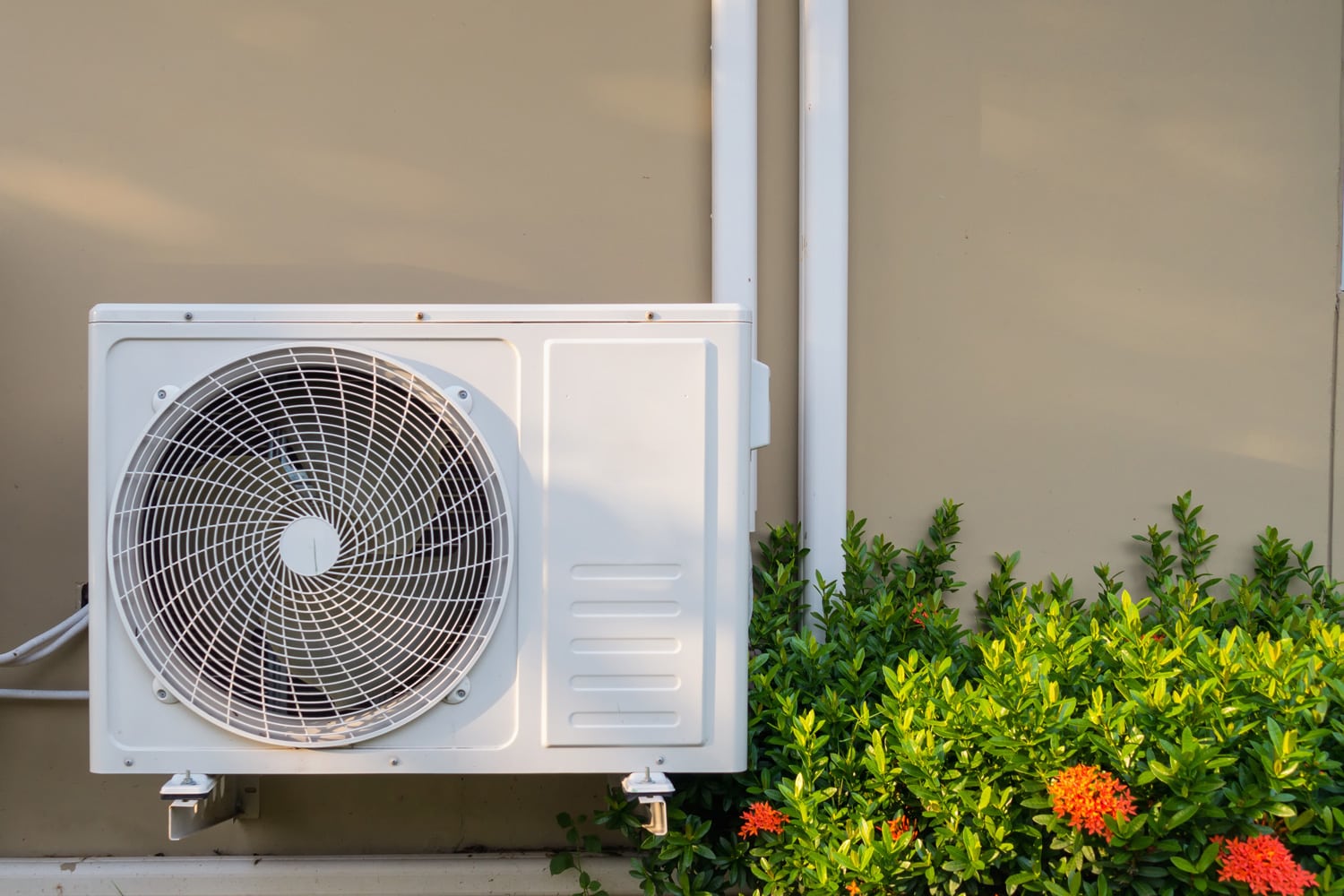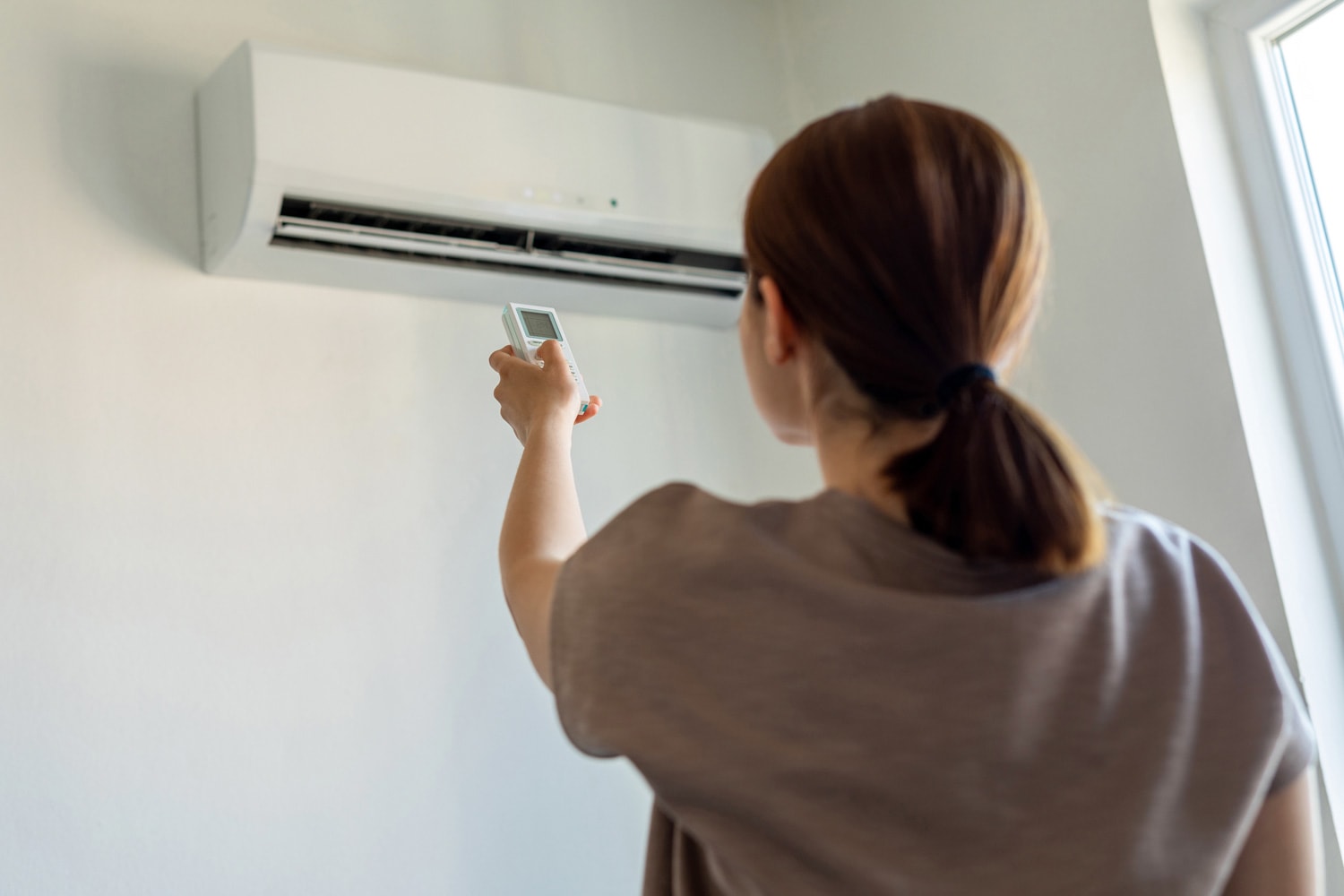If the air conditioning unit blows hot air or just hums when you turn it on, it's simply bothersome! You're sure something is wrong with your AC, and it needs to be checked by a technician. But worry no more! We have researched why your AC hums and why it fails to start so that you'll know what's going on.
A humming sound isn't usually a cause for concern, but if your AC won't start, it does indicate that something inside your air conditioner isn't working properly. It could be any of the following:
- The fan motor is not turning on
- Failure on the switch
- A trip on the circuit breaker
- The condenser filled with ice
- Condenser fan motor failure
- Loose components inside
- Refrigerant pipes that vibrate
- Bad capacitor
In general, an AC unit is a collection of many parts that allow it to function. A problem with one component could cause the entire system to fail. Keep reading to find out the most likely problem when your air conditioner hums but won't turn on.

Why Does the AC Hum But Won't Start?

An AC's humming sound and failure to start may be caused by a mechanical or an electrical problem. When you hear the hum on your AC, make sure to check on it right away even before it fails to turn on. Below are the common causes of your air conditioning unit making such noise:
1. The Fan Motor That Is Not Turning On
The condenser fan motor doesn't spin anymore but it still provides power. It will cause resistance as well as that loud humming sound. That's one way of knowing that something is wrong with your AC.
2. Failure On The Switch
The switch is located outside your home in the exterior condenser unit. To start the air conditioning unit from the outside, it needs the relay switch to work. If it gets warm inside, the switch may fail. This switch failure may trigger that humming sound.

3. A Trip On The Circuit Breaker
When your circuit breaker is overloaded, it normally trips. If the circuit breaker is faulty and will not reset, you may hear an electrical humming noise. It is a clear indication that something is wrong and you should consult a technician immediately.
4. The Condenser Filled With Ice
If the unit freezes, you will hear a loud humming or buzzing sound. Other possible causes may include a refrigerant leak, a clogged air filter, or a malfunctioning blower motor. A broken blower motor is located in your furnace. It will occasionally produce a humming or buzzing noise.
For more information, check out this article: Why Is My AC Condenser Freezing?
5. Condenser Fan Motor Failure
A broken condenser fan motor is like a blower motor. It will produce a humming noise when it fails. The fan motor makes a loud buzz if the indoor blower is operating, but the fan is not turning. This component's failure can be caused by a variety of factors, including debris entering the condenser, overgrowth near the unit, loose parts, etc.
6. Loose Components Inside
Your HVAC system is a complex machine with many moving parts. It's possible that a few parts became loose over time due to normal wear and tear. A loose part can cause premature wear as well as loud noises such as humming.
7. Refrigerant Pipes That Vibrate
Vibration may occur if the refrigerant lines are undercharged. This vibration will sound like humming. Some causes of a vibrating refrigerant line include an improperly mounted expansion valve. It's best to have it checked by an HVAC professional.
8. Bad Capacitor
Test for a faulty capacitor by pushing a long wooden stick through the fan grate and onto the fan blades. You should never do this with metal or your fingers. Push the fan's blades with the wooden stick to see if you can get the fan to start moving.
What To Do If the AC Is Humming But Won't Work?

If your capacitor is bad or faulty, your air conditioner will not work properly. The capacitor is a small and cylindrical component that is central to your air conditioner unit. It is the capacitor's job to store energy in the same way that a battery does, and as a result, the capacitor is critical in starting and maintaining the constant operation of the AC.
Since your HVAC system contains hazardous refrigerants, resolving the AC humming problem that is due to a bad capacitor is best accomplished by having a technician perform a diagnostic assessment on your entire unit. You might as well have a trained professional carry out these steps:
1. Check The Capacitor
If the fan starts spinning on its own after jumpstarting it, the problem must be with your capacitor because you have done the job that the capacitor is supposed to do. If the fan does not turn on, the problem must be somewhere else. More often than not, it will start running on its own.
You can also use this method to check your capacitor, but you will need to turn off the power on your AC unit first. Keep in mind that you should never touch the capacitor's terminals. They are conductors of electricity and can be dangerous without the proper gear.
After you have disconnected the power supply from your air conditioning unit, you should remove the air conditioning unit's service panel. Once removed, you should see the capacitor that powers the fan. When you have located the capacitor, do a visual inspection to determine its condition.
2. Turn Off The AC
If you have determined that the capacitor is in poor condition, turn off your air conditioner immediately. After that, contact an air conditioner technician who will be able to officially diagnose the problem and replace the capacitor for you.
If you continue to use your air conditioner even if it's not working properly, you will risk damaging other parts of the unit. The faulty capacitor can strain the fan motor and cause the compressor to overheat. It's best not to use your air conditioner until a technician can come out and replace it.
3. Replace The Capacitor
Unless you have relevant experience, it's recommended to contact an AC technician and ask them to replace your capacitor. AC technicians can easily determine if the faulty capacitor has caused any other damage to the unit.
What Causes Capacitor Failure and How to Avoid It?
The most common reason for a capacitor failing is the wear and tear scenario. Capacitors, like batteries, lose their ability to hold a full charge over time. As a result, they are unable to provide the necessary amount of power and energy to the various motors that they supply.
Warm temperatures and high voltage, which can overwhelm the capacitor, can also hasten wear and tear. This is why it is recommended that you have your AC unit serviced regularly. It also allows a technician to detect any potential problems early on.
Prevent causing irreversible damage to your unit with regular maintenance checks. It can also reduce the possibility of you waking up only to find that your air conditioner is no longer working.
Closing Statements

Now that you know the possible causes of your AC unit humming but not turning on, you might be able to diagnose the problem with your AC yourself. But you need to hire an AC technician to fix this issue. It's for your safety and to get your air conditioning unit back in good condition.
Before you go check out these related posts:
Ruud AC Won’t Turn On – What Could Be Wrong?
